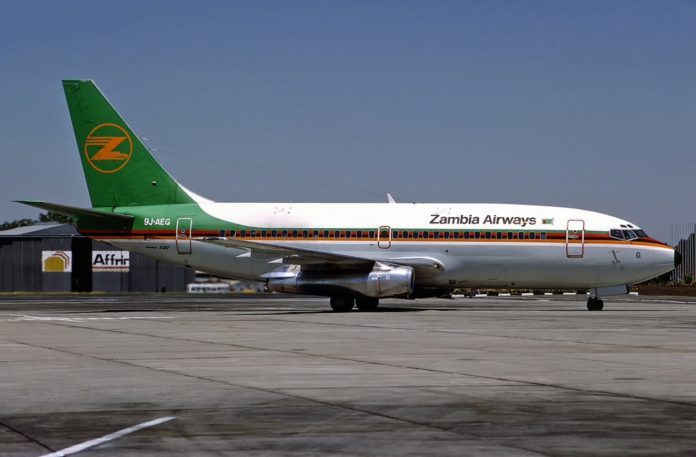ZAMBIA AIRWAYS TO CHARGE USD$300 RETURN FOR LUN-JNB ROUTE
Zambia Airways to charge USD$300 return for LUN-JNB route

The soon to be relaunched national carrier, Zambia Airways will target USD$300 for a return flight on Lusaka-Johannesburg route. This was disclosed by Transport Minister Honorable Brian Mushimba to the Zambian Business Times in an exclusive interview.
The minister said the Lusaka-Johannesburg (LUN-JNB) route with a flight distance of about 1,198km’s will be one of the most lucrative international routes for the national carrier. The route is predominantly serviced only by South African Airways and Rwandair in both directions, a situation that will make the national airline face tough competition.
The current weighted average flight price for a round trip to Johannesburg, South Africa is US$476 compared to US$120 road travel with a maximum permissible bagged weight of about 20kg.
The national airline will employ a low cost carrier (LCC) business model on the LUN-JNB route. With this business model, the primary focus will be on cost reduction in order to achieve price leadership strategy on this route.
The LUN-JNB route is medium-haul [1,500 to 4,000 km]. With a low cost carrier strategy, the air fares are targeted to be at around USD$300 for a round trip. This has been achieved by other airlines like Transavia, Ryanair, EasyJet and Southwest with a similar business model.
Mushimba said the national airline will also enter into a code sharing agreement with SAA. Therefore SAA and ZA2014 (as Zambia Airways will be coded) can present a common flight number for the benefit of the passengers and both companies.
Code sharing arrangements will provide clearer routing platform for the customers that will allow booking travel from JNB to respective destinations through Lusaka using one carrier code.
Mushimba further disclosed that the airline will generate income from passenger tickets, cargo and excess baggage fees in addition to mail revenue, to ensure that planes are loaded at above break-even load factors. This will also ensure the air ticket is attractive enough to pull a new set of passenger carders.
He said that the airline will operate using an LCC strategy which will ensure affordable ticket fares because it will not offer high cost features on short to medium haul routes like the Johannesburg route.
National carrier to hedge fuel price and leverage locally trained pilots
The minister, recognizing that fuel cost, pilot cost and leasing charges are the highest cost drivers for any airline, told ZBT that fuel costs will contribute approximately 30% of total aircraft operating costs. It is therefore, unavoidable to develop techniques that are designed to reduce financial risks of airlines associated with the volatility of global petroleum prices, according to the minister.
“To hedge the national airline against fuel price risks, government is in the process of liberalizing the supply of aviation fuel in the short to medium term. This will remove middlemen from the supply chain, ensuring that the oil farm facilities at new airports are fully supplied by cheaper oil sources and engage Indeni in the supply of Jet – A1 fuel,†Mushimba said.
He disclosed that the government will ensure that the airline adopts five policies which are fuel cost reduction policy, employee productivity improvement, flight operations efficiency, aircraft maintenance cost reduction and operating procedure simplification as well as twenty-one (21) associated measures as a cost schedules cutting plan that will ensure that the cost of operations are kept under control.
On the cost of pilots, another trouble spot for airlines, the minister said that “the airline will ensure that the cost of pilots does not negatively affect the operations of the carrier. Ethiopian Airways will initially lease three (3) aircrafts and government`s vision is to transform ZASTI into a regional center of excellence providing commercial pilot training among others who will be available for recruitment by the national airlineâ€.
“The transformation process has already began and soon the institute will be equipped with state-of-the-art training aids that will ensure world class commercial trained pilots. The locally trained pilots will provide a pool from which recruitment by the national airline will be facilitated. This competition will keep the salary structure for all pilots working for the national airline at sustainable levelsâ€, Mushimba said.
Zambia has re-scheduled the launch of its national carrier, Zambia Airways from the initially communicated 24th October 2018, which was to coincide with the country’s independence day, to January 1, to be the country’s new year’s present.